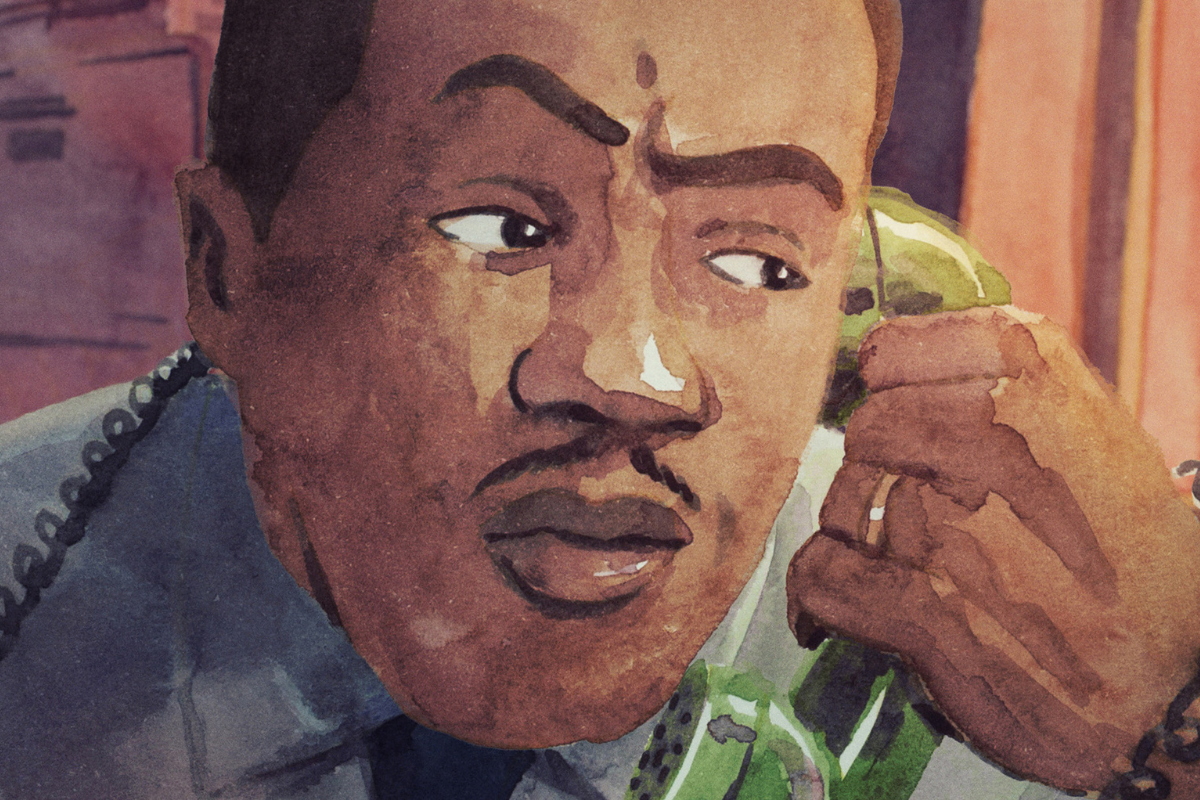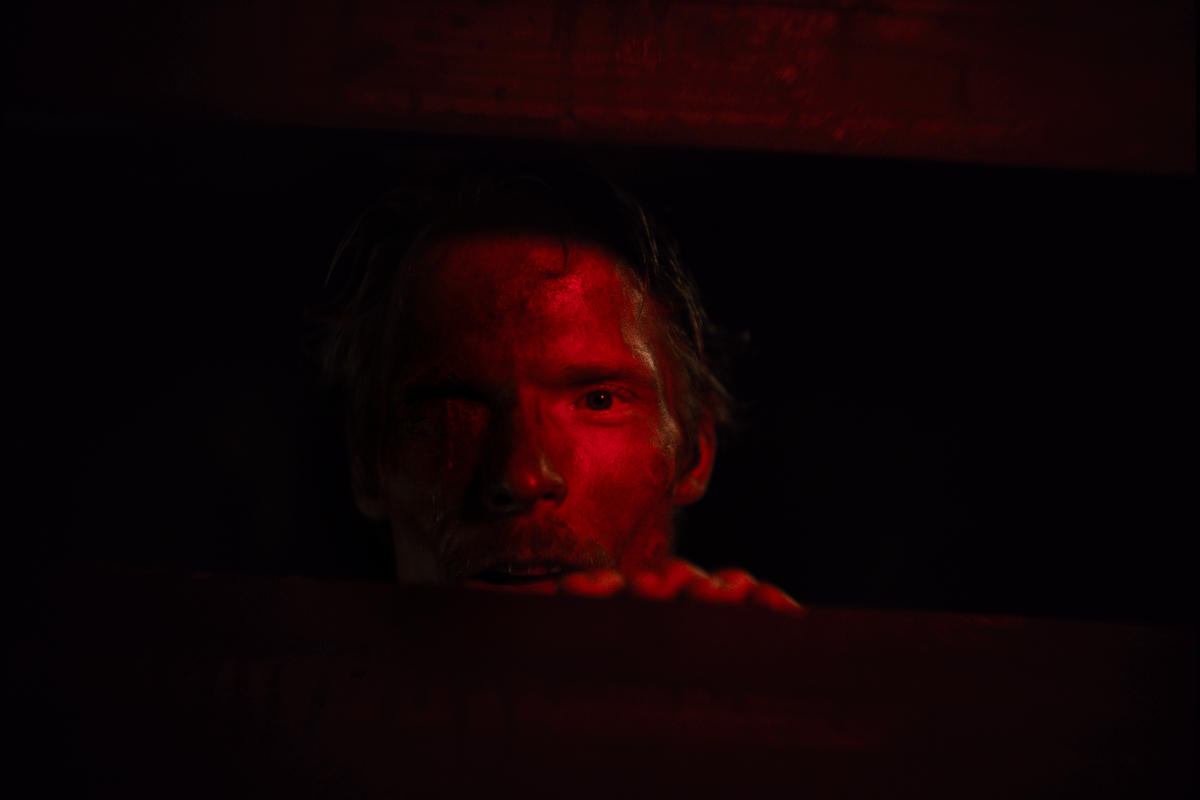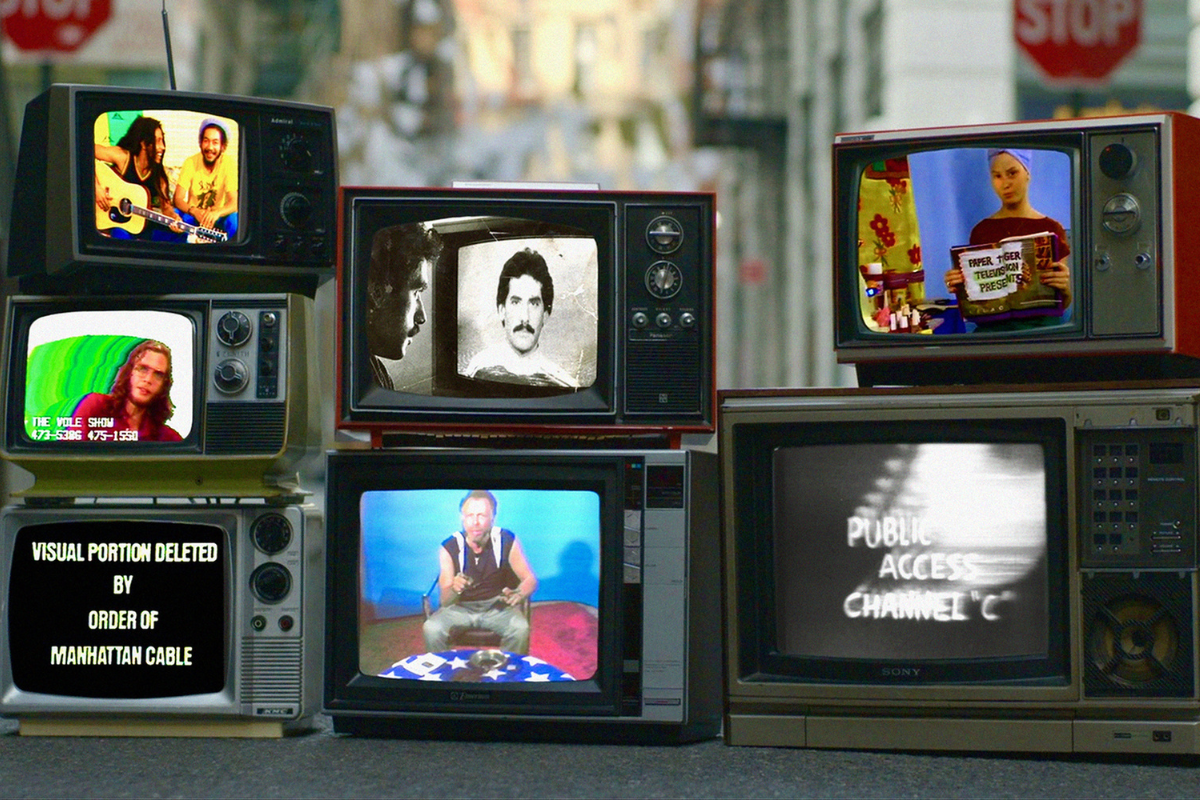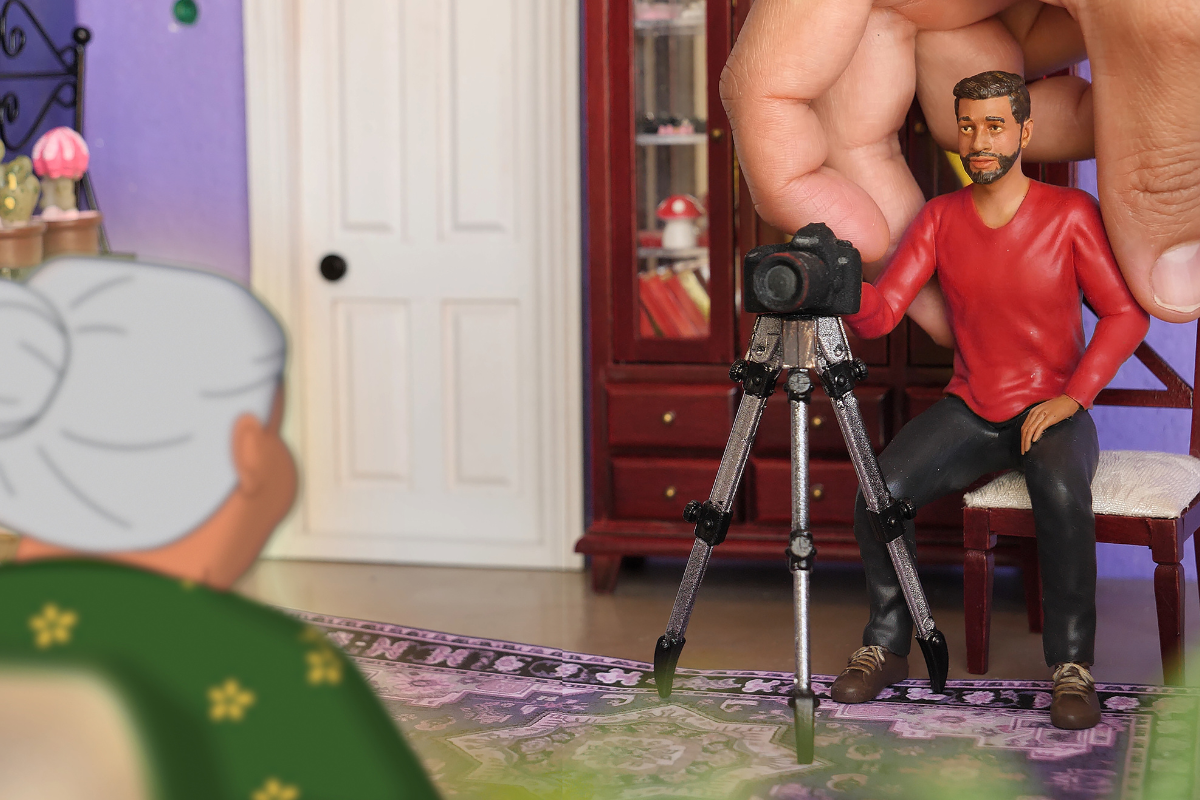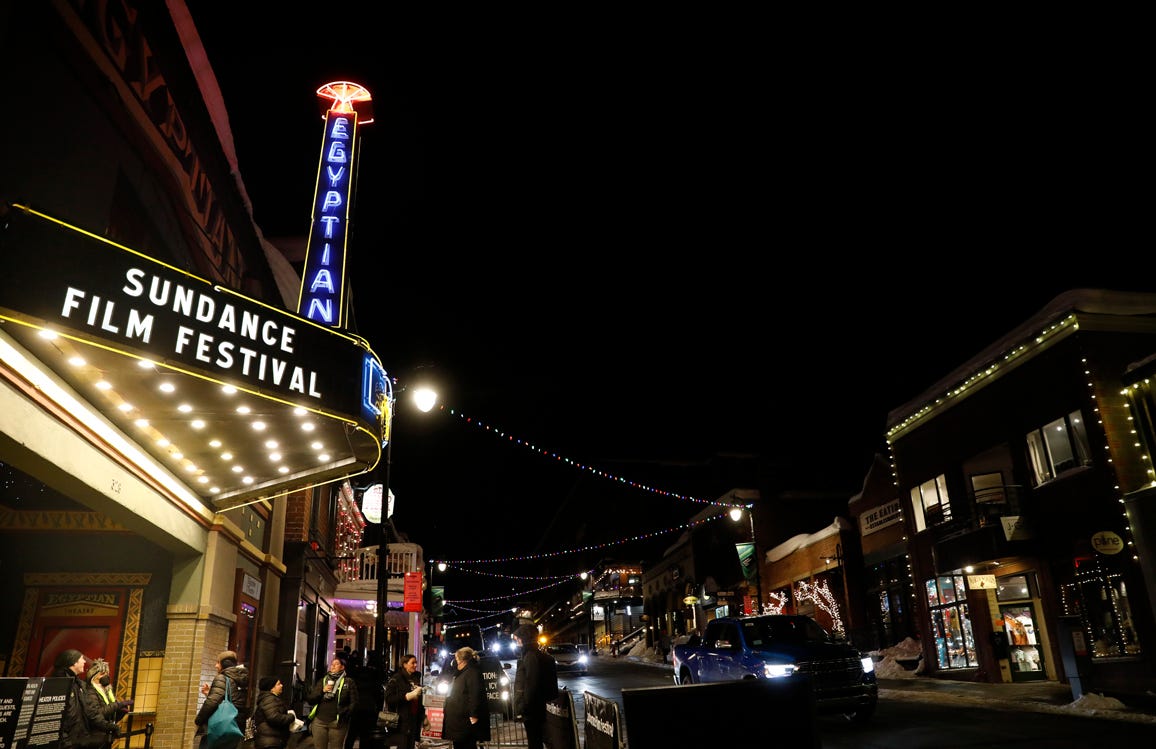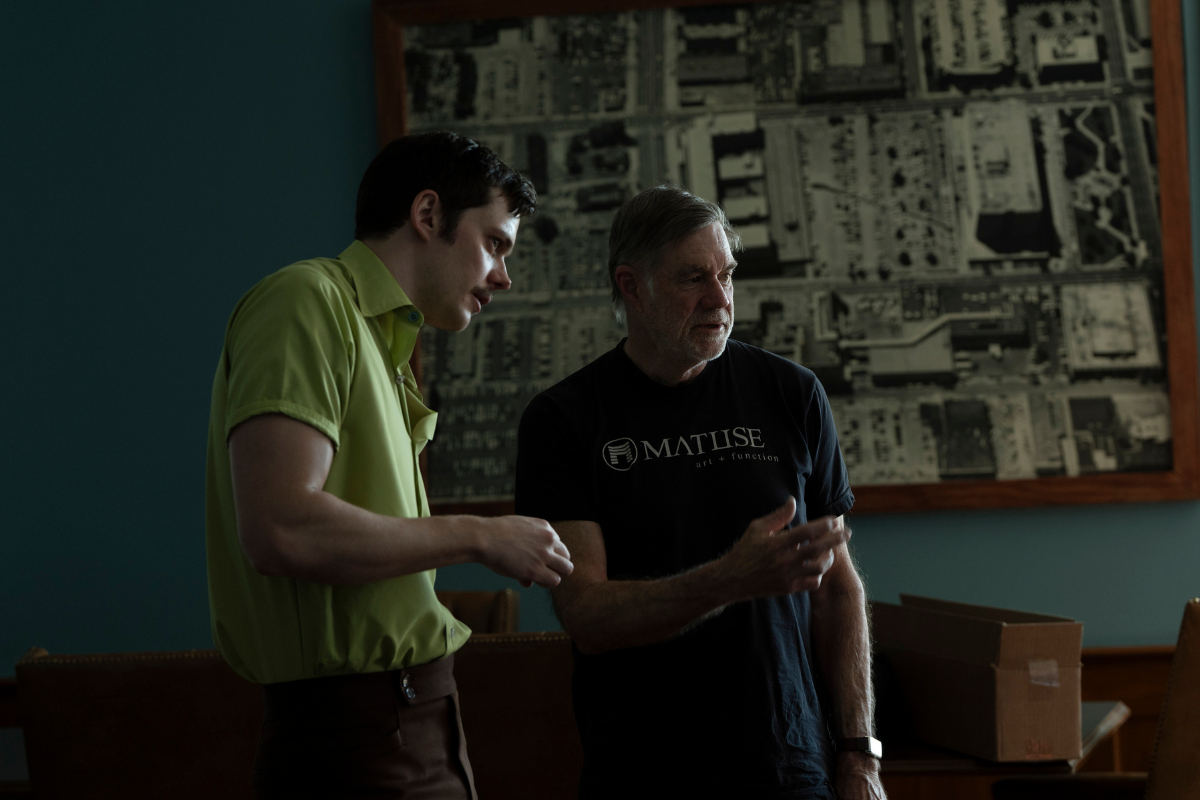SXSW 2023 – Capturing Honest, Authenticity and Humanity at the Very Core: A Conversation with ‘The Angry Black Girl and Her Monster’ Filmmaker Bomani J. Story and Actors Denzel Whitaker, Laya DeLeon Hayes, and Chad L. Coleman
Filmmaker Bomani J. Story, and actors Denzel Whitaker, Laya DeLeon Hayes, and Chad L. Coleman recently spoke with Script about the heart of the film, their characters, their unique voices, and why authentic stories and new voices are vital to movies.
Vicaria is a brilliant teenager who believes death is a disease that can be cured. After the brutal and sudden murder of her brother, she embarks on a dangerous journey to bring him back to life. Inspired by Mary Shelley’s Frankenstein, "The Angry Black Girl and Her Monster" thematically challenges our ideas of life and death. Bomani J. Story, the film's writer and director, crafts a thrilling tale about a family that, despite the terrors of systemic pressure, will survive and be reborn again.
There is a collective beauty in watching movies, whether it's a film you liked or didn't like, but it's when a film sparks a dialogue, either within yourself or amongst your peers. And this film, The Angry Black Girl and Her Monster, is a film that leaves you in constant conversation with yourself and the urge to engage in a meaningful dialogue with others.
While at the SXSW Film & TV Festival, on a bright and sunny Sunday afternoon, I had the great pleasure to speak with a group of incredibly gifted filmmakers and storytellers in their own right, writer-director Bomani J. Story, and actors Denzel Whitaker, Laya DeLeon Hayes, and Chad L. Coleman. We dived into the heart of the film, their characters, their unique voices, and why authentic stories and new voices are vital to movies.
This interview has been edited for content and clarity.
Sadie Dean: Let’s start with the story and your approach to the material, Bomani.
Bomani J. Story: Well, to me, it starts with the original text. The bible itself, Frankenstein - it starts there. I read it, and I couldn't put it down, it gave me anxiety. I just knew that I was like, ‘Oh, there's so much here that people haven't toyed with.’ And I really wanted to bring it to life in a way that people hadn't seen before by exploring the original text as much as I could.
I have two older sisters who mentored me my whole life, and they're very inspiring to me - they were kind of my muse during this process. And then, obviously, cultural events, and things of that nature, and my own household, because my mom was a biology major and my dad was a pharmacist. I always say, ‘my dad gave me my self-confidence and my mom gave me the culture.’ She was a militant woman. [laughs] All those things really fed into this.
Sadie: What was the creative and writing process in putting this story on the page, to getting to the point where you knew you could bring this to life as a film?
Bomani: It is a very painful process first creatively. [laughs] The way I like to describe it is you're set in a maze and all the lights are off. You can't see two feet in front of you. And then you walk, and you hit a wall, and then it lights up. And then you're just like, ‘Oh, OK, so I can't go that way. But at least I can see that I can't go that way.’ And you basically just keep bumping into walls until you light up the whole maze. And then once the maze is lit up, then you're just like, ‘now I know how to navigate this story.’ So for me, the writing process - I have the idea - I have to kind of stumble through this maze in the darkness and try to figure this out. So, you know, there's a lot of drafts that none of you will ever read!
[ALL LAUGH]
Bomani: Skateboards are in one of them [laughs] That's kind of my frustrating process, you know? I haven't found a way around it. [laughs] I'm trying because it's painful.
Sadie: That’s part of the process though, right? You have to dig through all of that stuff to get to the core of the story. Dialogue and character voice really stands out in this film. Was there any instance where you went bac to the script to refine character voices once you had your cast in place?
Bomani: One of my idols is Billy Wilder. He was just the king of the script. He was a wonderful director, I think people don't give him enough credit for his directing as well, but his characters just really come off the page. I always think of Ace in the Hole, that guy, as soon as he steps on the fucking scene, as soon as lights the cigarette off the typewriter.
Sadie: You know that guy.
Bomani: Yeah, you know who this man is, you know he ain’t fuckin' around, right? So, when I was approaching these characters, it's important to me to not only just try to capture the honesty, authenticity, and their humanity at the very core, because as intelligent as these characters are, a lot of it is a reaction to what they're dealing with. You know what I mean? I feel like Vicaria is processing her situation through her obsession with death. And the same thing with Donald, Chad’s character, he's processing it this way. And the same thing with Kango, you know? Like, ‘I gotta outthink everybody to stay alive.’ This is what I have to do. So now he's doing whatever it is, to all - these are just reactions to this. What do we need to do? And so it's just coming at it from these kinds of angles, and trying to find all the dimensions and the humanity of them was my ultimate goal while writing it. Luckily, for me, working with these wonderful human beings, they really bring it to life, because they all have stuff to say. And it's hard, but they really brought the humanity. Especially, Laya, those lines. it's a lot, but she's really able to make it sound like something she would fucking say.
I write the script and I treat it like a Bible for myself. But once you step on set, it's just a blueprint, right? And I want the actors to be able to do what they will with it, because whatever they're going to bring is going to sound more human than what's on the page. So, at this point, I've gotten mixed up on what was on the page, but there was a lot of mixture, and I really think they captured the essence of that.
Sadie: I feel like with all of your characters, they’re processing grief in their own ways, for each other, their families, for the community all through the lens of horror. For the three of you, Chad, Laya, and Denzel, what was your motivation for portraying these characters, and what you knew you could bring to the table for this story?
Chad L. Coleman: Well, I mean, first and foremost, I am a father, so that resonated right away. The condition of our people and our community, it's a no-brainer. His [Bomani’s] ability to weave it the way he did and make this hybrid thing, it was very exciting. And I saw it! It's wonderful when you could see a vision right away. It was inspiring. I was like, ‘yes, I want to be a part of this.’ I've said many times, actors want to work on things that are relevant, that's right now, fierce and urgent. All that. Denzel - I already know - I called him – I know his artistic integrity. As soon as I finished with you, I said, ‘hey I'm in!’ No lie, that's exactly what happened.
As soon as I saw her [Laya], we went to eat, as soon as I felt her energy, I said, ‘That's my baby,’ because my daughter is 23, she reminds me a lot of her. Just fiercely intelligent, warm, kind, and real - that was easy. Me and him [Denzel] always rock together. And when I went to eat with him, [Bomani] man, it was just, I feel like we all come from the same lake. [laughs] It was really easy in that way. And then as he said the way he is willing to work on set, 'Listen man, I'm not precious with it. Just bring me real life.' I'm so proud of this movie. And we really, this is one for me…it’s gonna stay with me forever, because it's so damn important. And he's not preaching to you.
Sadie: Right! And that father-daughter scene at the school with the teacher and it's just like, ‘Don't worry about it. This is who we are. I'm a father. This is my child. I'm going to protect her. See ya later.’
Chad: Yes, that's right. We see you. Now you see us. Have a good day!
[ALL LAUGH]
Chad: Yeah, I love that scene.
Sadie: And your restraint in that scene.
Chad: Yeah, calibrating that!
Sadie: Laya, you’re carrying this film so brilliantly. So many layers you’re bringing to each scene, I’m very curious about your process with this character.
Laya DeLeon Hayes: Just getting the script. There were many things that I could relate to that resonated with me, especially my family. I saw a lot of myself in Vicaria. And I mean, the first time I really read the breakdown for the character, I couldn't stop writing about her. I couldn't stop thinking about her - to have an obsession with death was so fascinating to me. [laughs] And I just kept wanting to peel back layers and that interest in Vicaria never wavered. And in fact, it grew especially after having meetings with Bomani and seeing his vision for the movie and for the character as well. Like Chad just said, and I almost forgot about that, quote, he was like,’ Don't be precious with it.’ It was something of a mind he just kept reiterating throughout the process of filming, which was so freeing and liberating as an actor, to just know that you can make whatever choice and we're going to figure it out along the way. But just to keep asking questions, was something I felt I needed at that time.
But again, to play Vicaria, I was fascinated by her. And I kept reading the script and kept reading the character. And I knew I wanted to play it, and it was going to be a challenge for me too, I had never been a lead in a film before. And then again, having meetings with Bomani, he opened my mind to ideas that I didn't even think were possible on a project like this, which was very cool. To get on set and to work with Chad, to work with Denzel, two that I have been watching [laughs] for a long time just growing in the industry, it was one, a dream for me, but two, again, really liberating and the challenges and acting and also playing off of each other and it felt like the very first time we met, it was just that energy and synergy that you can see also on screen. You just don't get many characters like Vicaria, as someone in my position, and you don't get many stories like Bomani's either. You don't meet young creatives who are wanting to actually push the boundaries of what they can do and have original fresh ideas that also pertain to an experience, the Black experience that we all share. So that was the biggest gift for me to see that script and then to be able to book it, of course, and actually work on this.
Sadie: Yeah, that's incredible. And I just love this whole idea of the communal filmmaking experience. Let's have a great time and make this our own. There are moments where it feels like this could be a documentary in a way, you're kind of like a fly on the wall watching her. These are real people. This is a real community, they all deeply care about each other in their own unique way.
For you Denzel, your character, you’re essentially the king of this community, yet you're carrying so much to protect your community, and then there’s the other layer that you’re also a caretaker – so many layers about this character that is rarely seen in films. What was your approach and your motivation behind this guy and then meeting this actual monster in the community that you've made, essentially?
Denzel Whitaker: Sure, sure. I mean, I'm so glad you said that, because from day one, the goal for myself, and especially once I got to meet with Bomani was playing against type. On paper Kango can very much come off as the stereotype of intimidating and the stereotype is like, ‘I'm Mr. Bad Man of the community.’ And it was never about that. From day one we kept asking questions to the page, like, who is Kango? Who were the generations before him? What were the people around him? And again, it's all circumstantial. There could be some of the most brilliant minds found in the rough. But very similar to one of the core themes about this film is if everybody around that person tells them they’re this, tells them they're that they start to believe they're the monster themselves. And especially for us, it's Black people in America, for so long, we've been told like, ‘This is who you are, you'll never be more than this,’ or you've been the slave hands, you're kind of stripped of your identity, almost just your working body is here, but your mind is gone.
So oftentimes, there are people in communities, especially like a Kango, who have never seen anything past that. Kango had to be the community protector, because generationally, that's all he's seen. And he's gifted in the mind, and he's very sharp, and he's very intelligent, that he applied it to what would be, you know, the drug game, what would be a life of crime. If he would apply that to maybe physics or if he would have applied it to accounting or whatever it may be, that same mind could have been applied, but this is how he chose to apply his mind.
Whereas Vicaria on the other hand chose to apply her mind towards science. And just the difference of being able to yes, there's the joke about her going to the white school, but the white school is better because she's there, which is actually true. Just imagine how many times if we could be put in other environments where we could thrive, how much better we could be.
So that's the thing. Society has labeled Kango as one way. And he's sort of taken on that moniker for better or worse, but he definitely has a working intelligent mind. And that was one of the things that Bomani and I were so adamant about finding. There's an underlying theme of protect the community, I'm creating opportunities, at the same time to never let anybody know the play that's really going on in your mind.
Sadie: It’s so critical that we have these stories that show different light, on these real stories, and how you’re putting it through this horror lens, tropes and all, but it works on so many levels. And these characters are just amazing.
There’s this wonderful visual translation that happens where the film starts out light, and bright – Vicaria is literally shining and as the second act turns, it gets darker, grittier, and more contained. What was that creative collaboration like with your DP?
Bomani: Daphne [Qin Wu] is like I say Daft Punk [laughs] you know what I mean, she's a real one. I loved working with her. I hope she'll bless me with working with her again. She was incredible. People look at me like, ‘yeah, you're the director, you direct the crew,’ and I was just like, ‘Nah, the DP, she has her own squad that she's moving.’ I cracked a joke when we were on set, ‘if we're gonna build the sets, then we gotta get the Taxi Driver shot.’ [laughs] And I was like we can't afford a techno crane on set, and I showed up the next day on set and her crew has rigged this thing to the building! [laughs] She's like, ‘This is what you want right?’ [laughs] She's like, ‘We're ready to go!’ [laughs]
I told her in the beginning, when it comes to the glass, when we're doing this movie, I want a different kind of look. One of my inspirations for this movie was some of the 70s horror films like Texas Chainsaw Massacre, and Black Christmas, the original ones, you know what I mean? I want something that looks different, where it feels good. And like she was like, OK, so she went away and she came back a week later and was just like, ‘I found this glass, you might like it,’ [laughs] it was these 70s Japanese glass and she's like, ‘look at these videos!’ [laughs] And then mixed with her and our colorist Ariana, they really pulled together a visual thing. The way Daphne was able to craft the beautiful colors you see in the beginning and then slowly moving into a more corrupt tone it was definitely all intentional with her and working with her and trusting her and listening to her counsel as well. She's a real one. Everybody hire her! [laughs]
Sadie: What do you hope audiences take away from this movie after they watch it?
Bomani: Not to let someone dictate who you are. You know? Because I feel like the real horror in this movie is having someone tell you something that you're not. And then you believe what they're telling you what you are. I hope that people can see the horror in that and take that with them.
Denzel: Damn, that's good a good answer. That is the core of this film. Entirely, that is it. If anything, I would say support authentic voices, I'd say this film would be nothing if it weren't for the vision of Bomani and his shared experiences and bringing that to life. The reason this film shines, and the reason it has such an incredible political and social impact is because of this man right here. And you know, it starts with the text. It really does. So, I know myself as a performer, and I'm sure Chad and Laya would attest to this, we're grateful to have great pieces of work like this that we can feed off of. Just give more opportunity to more voices who truly have a vision.
Laya: What both Denzel and Bomani said, exactly. I think there's just a lot of important messages in the film, that I hope people will pick up on, of course, I want them to also enjoy the ride that it takes them on. Stay engaged in the story. That was so great about the premiere last night, it felt like our audience was there and present and reacting the same way we were reacting, so I hope that they have any type of visceral reaction and also it makes them think or have conversations about things they wouldn't think about. And again, like Bomani said, they see the real horror in this, it's truly scary.
Chad: All of that. [laughs] It's all that. That's the truth. You [Bromani] crafted the movie so well, that you have to be burying your head in the sand if you don't get it. But I feel like he knew that you ain't gonna bury your head, you gotta get up and leave the theater if you don't wanna take it on. [laughs]
Bomani: Just like Laya said I hope that people enjoy the ride. Sometimes I'll be watching stuff, and I'm just like, ‘Look, man, I'm watching this. Take me on a ride. Tell me a good story.’
Chad: My time is precious.
Bomani: Yeah! You're asking a lot of an audience. Even for short movies that are an hour and a half, you're still asking for their time, let alone their money. Time is more valuable than money. People figure that out very quickly, so I hope that people are able to enjoy the ride and walk away with something, thoughts in their head, and they're a little bit disgusted. [laughs]
The Angry Black Girl and Her Monster had its world premiere at SXSW on March 11, 2023.
Upcoming SXSW Screenings
Violet Crown Cinema 3
- March 16, 2023 7:30pm—9:01pm


